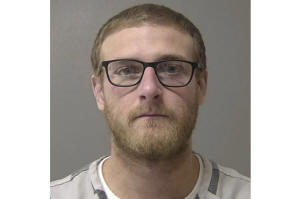Sonya Massey shooting prompts Illinois law requiring disclosure of
police recruits' backgrounds
[August 13, 2025]
By JOHN O'CONNOR
SPRINGFIELD, Ill. (AP) — Illinois law now requires that prospective
police officers approve the release of personal background records in
response to last summer's shooting of Sonya Massey, an unarmed Black
woman, in her home by a sheriff's deputy who had responded to her call
for help.
Gov. JB Pritzker on Tuesday signed the legislation, which requires
disclosure of everything from job performance reports to nonpublic
settlement agreements. It resulted from indiscretions that came to light
in the background of Sean Grayson, the ex-sheriff's deputy charged with
first-degree murder in the case.
Pritzker, surrounded by Massey's family in the state Capitol, said the
first-in-the-nation law should serve as an example for other states as
he let Massey's “spirit guide us to action.”
“Our justice system needs to be built on trust,” the Democrat said.
“Communities should be able to trust that when they call the police to
their home, the responding officer will be well-trained and without a
history of bias or misconduct, and police officers should be able to
trust that they are serving alongside responsible and capable
individuals.”
The legislation was sponsored by Sen. Doris Turner, a Springfield
Democrat and friend of the Masseys, and Chicago Democratic Rep. Kam
Buckner, who noted that Thursday marks the 117th anniversary of the
three-day Race Riot in Springfield that led to the founding a year later
of the NAACP.
Who is Sonya Massey?
Massey, 36, was a single mother of two teenagers who had a strong
religious faith and struggled with mental health issues. In the early
morning of July 6, 2024, she called 911 to report a suspected prowler
outside her home in the capital city of Springfield, 201 miles (343
kilometers) southwest of Chicago.

Grayson and another deputy searched but found no one. Inside Massey's
house, confusion over a pot of hot water Massey picked up and her
curious response to Grayson — “I rebuke you in the name of Jesus” —
which the deputy said he took to mean she wanted to kill him, prompted
him to fire on Massey, hitting her right below the eye.
What prompted the legislation?
The 31-year-old Grayson was 14 months into his career as a Sangamon
County Sheriff’s deputy when he answered Massey's call. His arrest two
weeks later prompted an examination of his record, which showed several
trouble spots.
In his early 20s, he was convicted of driving under the influence twice
within a year, the first of which got him kicked out of the Army. He had
four law enforcement jobs — mostly part-time — in six years. One past
employer noted that he was sloppy in handling evidence and called him a
braggart. Others said he was impulsive.

[to top of second column]
|

This January 2025 booking photo provided by the Macon County jail
shows Sean Grayson, a former Sangamon County Sheriff's deputy who is
charged with first-degree murder in the shooting death of Sonya
Massey in Springfield, Ill. (Macon County Jail via AP,File)

What does the law require?
Those seeking policing jobs must sign a waiver allowing past
employers to release unredacted background materials, including job
performance reports, physical and psychological fitness-for-duty
reports, civil and criminal court records, and, even otherwise
nonpublic documents such as nondisclosure or separation agreements.
“It isn’t punitive to any police officer. The same kind of
commonsense legislation needs to be done nationwide,” James Wilburn,
Massey’s father, said. “People should not be able to go from
department to department and their records not follow them.”
The hiring agency may see the contents of documents sealed by court
order by getting a judge's approval, and court action is available
to compel a former employer to hand over records.
“Several departments need to pick up their game and implement new
procedures, but what’s listed here (in the law) is what should be
minimally done in a background check,” said Kenny Winslow, executive
director of the Illinois Association of Chiefs of Police, who helped
negotiate the proposal.
Would the law have prevented Grayson's hiring?
Ironically, no. Most of what was revealed about Grayson after his
arrest was known to Sangamon County Sheriff Jack Campbell, who was
forced to retire early because of the incident. Campbell was aware
of Grayson's shortcomings and, as a result, made him repeat the
state's 16-week police training course.
Even an incident that didn't surface until six weeks after the
shooting — a dash-cam video of Grayson, working as a deputy in a
nearby county, ignoring an order to halt a high-speed chase and then
hitting a deer with his squad car — would not have disqualified him,
Campbell said at the time.
“We can't decide who they do or don't hire, but what we can do is
put some parameters in place so that the information will be there
and the right decision can be made,” Buckner said.
What's next?
Grayson, who also faces charges of aggravated battery with a firearm
and official misconduct, has pleaded not guilty and is scheduled to
go to trial in October.
Publicity persuaded Judge Ryan Cadagin to move the proceeding from
Springfield to Peoria, 73 miles (117 kilometers) to the north. The
incident has garnered international news coverage, prompted
activists' rallies, and led to a $10 million civil court settlement.
All contents © copyright 2025 Associated Press. All rights reserved |